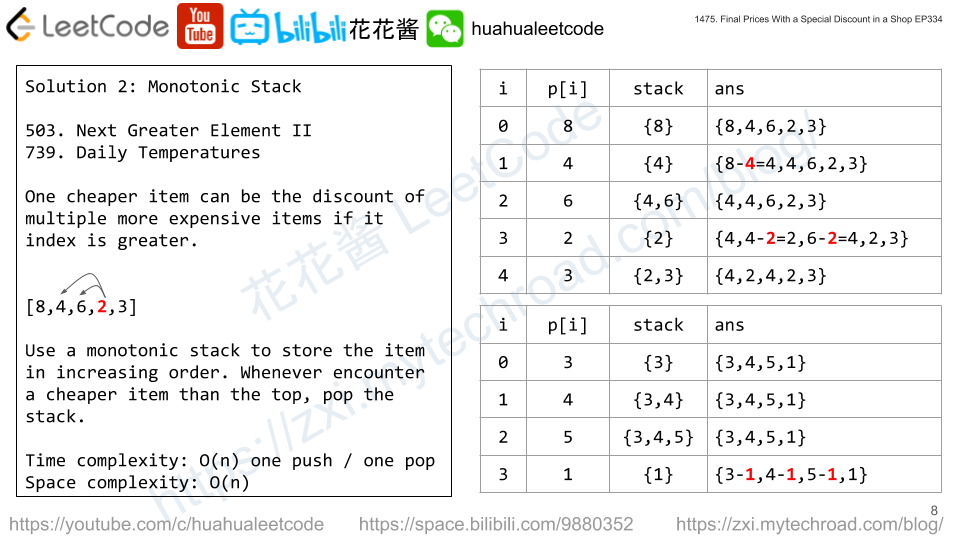Given a string s of lower and upper case English letters.
A good string is a string which doesn’t have two adjacent characters s[i] and s[i + 1] where:
0 <= i <= s.length - 2s[i]is a lower-case letter ands[i + 1]is the same letter but in upper-case or vice-versa.
To make the string good, you can choose two adjacent characters that make the string bad and remove them. You can keep doing this until the string becomes good.
Return the string after making it good. The answer is guaranteed to be unique under the given constraints.
Notice that an empty string is also good.
Example 1:
Input: s = "leEeetcode" Output: "leetcode" Explanation: In the first step, either you choose i = 1 or i = 2, both will result "leEeetcode" to be reduced to "leetcode".
Example 2:
Input: s = "abBAcC" Output: "" Explanation: We have many possible scenarios, and all lead to the same answer. For example: "abBAcC" --> "aAcC" --> "cC" --> "" "abBAcC" --> "abBA" --> "aA" --> ""
Example 3:
Input: s = "s" Output: "s"
Constraints:
1 <= s.length <= 100scontains only lower and upper case English letters.
Solution: Stack
Iterator over the string, compare current char with top of the stack, if they are a bad pair, pop the stack (remove both of them). Otherwise, push the current char onto the stack.
input: “abBAcC”
“a”
“ab”
“abB” -> “a”
“aA” -> “”
“c”
“cC” -> “”
ans = “”
Time complexity: O(n)
Space complexity: O(n)
C++
|
1 2 3 4 5 6 7 8 9 10 11 12 13 14 |
class Solution { public: string makeGood(string s) { string ans; for (char c : s) { if (ans.length() && abs(ans.back() - c) == abs('a' - 'A')) ans.pop_back(); else ans.push_back(c); } return ans; } }; |
Java
|
1 2 3 4 5 6 7 8 9 10 11 12 13 14 |
class Solution { public String makeGood(String s) { var sb = new StringBuilder(); for (int i = 0; i < s.length(); ++i) { int l = sb.length(); if (l > 0 && Math.abs(sb.charAt(l - 1) - s.charAt(i)) == 32) { sb.setLength(l - 1); // remove last char } else { sb.append(s.charAt(i)); } } return sb.toString(); } } |
Python3
|
1 2 3 4 5 6 7 8 9 |
class Solution: def makeGood(self, s: str) -> str: ans = [] for c in s: if ans and abs(ord(ans[-1]) - ord(c)) == 32: ans.pop() else: ans.append(c) return "".join(ans) |


